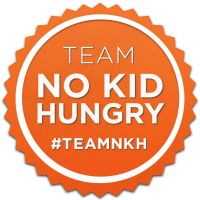(the following is from an assignment I wrote for the class I'm taking this summer to accompany the DC trip)
World Hunger Relief, Inc. is a Christian
faith-based organization, working to end hunger in our community and around the
world. Their organization philosophy is "to live simply, helping those who
struggle to meet their basic needs by sharing and investing in others what God
has given to us," and they work to train and educate members of the
community so that they can become active participants in the fight for food
security. Through a system of internships and
volunteers, WHRI trains hundreds of people work in communities, developing
geographically appropriate, sustainable farming methods and learning how to
effectively advocate for those in need, while establishing and solidifying
partnerships essential to success. WHRI began in 1976, as a non-profit started
by Bob and Jan Salley. The Farm has a strong international focus, with
interns who have trained and worked in 20 different countries, but the organization also has a great presence in the local community.
This
past week I went out to The Farm along with three classmates, to meet up with
one of the staff to get a tour, learn more about the organization, and have an
opportunity to ask questions we might have. At WHRI we met up with Erin, who was very helpful in showing us around. From her we learned about
the many partnerships that WHRI has with other organizations in the community,
for example how they provide some food for Caritas, and the work that they do
in educating children at schools in McLennan County about gardening and healthy
eating. During the tour we
saw the variety of services and educational experiences they offer. Aside from
providing produce and items for sale and donation to the Waco Downtown Farmers Market, schools and other organizations, they provide individuals and groups
with opportunities to learn for themselves (and their communities) how to grow
their own produce and become informed citizens to the issue of food insecurity
in America and around the world. Their service learning opportunity, LOTOS, or
Living on the Other Side, gives participants an opportunity to, in a safe and
educational setting, live an impoverished lifestyle, and Erin spoke about the progress livestock
interns have made working with and caring for the goats on the farm. WHRI is funded through grants, donations, and
selling produce grown at the Farm, and while they are not directly engaged in
research, they collaborate with Texas A&M for the rice gardens project in
Haiti, by providing the agricultural expertise.
Like
all of the organizations and groups we visited and spoke to in Washington,
D.C., collaboration is a key part of how World Hunger Relief, Inc. makes an
impact on the issue of hunger. In fact, when asked about if and how WHRI
measures their impact or determines their success, Erin mentioned that it is
difficult to determine the exact impact WHRI alone would have on the community,
as they take more of a big picture approach and look at what everyone,
collectively does to help. Outside the front of the main building at WHRI,
there are wooden plaques with names of their community partners, and Erin gave
us a list of some coalitions WHRI is a part of, including the Urban Gardening
Coalition, McLennan County Hunger Coalition, the Food Planning Taskforce, and
the Food Policy Roundtable.
This collaborative approach of World Hunger
Relief, Inc. reflects a very important part of their intervention strategy and
an important point about how the issue of hunger can be solved. That is, that
it takes more than providing the hungry with food, more than attempts to make
food more available where they previously were not, more than food banks, more
than this or that, one thing or the other. Through their own efforts and partnerships,
WHRI works at every aspect of the food issue, from growing healthy food to
selling it, educating youth, engaging in discussion, and creating an informed
community to hopefully become active in food policy. "Food is the ultimate
social justice issue," said Rabbi Noah Zvi Farkas in A Place at the Table (p. 148), and as such it is important that we
explore and understand all aspects of the issue, and for me personally,
learning about the work that is done at WHRI has helped to ground the issue for
me, literally and figuratively. The issues of social justice that I am
passionate about all come back to the fact that we are all human, and that is
reason enough for me to decide which side of things I stand on. With hunger it
also has to do with our home, the Earth and its bounty, and how we chose to be
in control of it, from the dirt in the ground to the positions we take when voting on
bills and laws.
and now, the photos!






.JPG)































0 comments:
Post a Comment